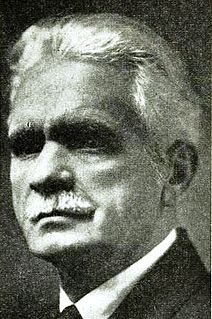A Quote by Jonathan Safran Foer
When a book remembers, we remember. It reminds you that you have a body. So many of the things we may think of as burdensome are actually the things that make us more human.
Related Quotes
Rare is the book that can actually transform us into better, more fulfilled people. Having combed through the research and documented case studies all over the world, Kristof and WuDunn present the clearest view I have ever seen of the human soul. A Path Appears tells us whether we are intrinsically good, why specific ways we parent our newborns help predict their chances for success, and how we can live lives of greater significance. This book, full of rich and riveting true stories, reminds us that human greatness is all around us, and even within us, if we dare to look.
What we want
is never simple.
We move among the things
we thought we wanted:
a face, a room, an open book
and these things bear our names -
now they want us.
But what we want appears
in dreams, wearing disguises.
We fall past,
holding out our arms
and in the morning
our arms ache.
We don't remember the dream,
but the dream remembers us.
It is there all day
as an animal is there
under the table,
as the stars are there.
I think that we as humans have this intuition that we should be afraid, in order to protect us from things, or be afraid in order to prepare us against things. In most emotional situations you cannot prepare, so it is really just a waste of energy. I just realised all of this - that being scared and putting my body into a serious stress situation - was actually hurting me more and wasn't making me feel healthier and was actually making me sicker when I was dealing with my disease.
All photographs are there to remind us of what we forget. In this - as in other ways - they are the opposite of paintings. Paintings record what the painter remembers. Because each one of us forgets different things, a photo more than a painting may change its meaning according to who is looking at it.
Everybody remembers numbers and computers remember numbers. People remember procedures and computers certainly remember procedures. But the other thing that's still important is that your perception as a human is affected subtly by all this stuff that you can't quite articulate. You run your life according to all this stuff that's happened to you. All of your memories affect everything you do whereas with a computer, there's adaptive software and things, but it's more literal.
Did Ethan Smith's View of the Hebrews furnish structural material for Joseph Smith's Book of Mormon? It has been pointed out in these pages that there are many things in the former book that might well have suggested many major things in the other.Not a few things merely, one or two, or half dozen, but many; and it is this fact of many things of similarity and the cumulative force of them that makes them so serious a menace to Joseph Smith's story of the Book of Mormon's origin
Technology is supposed to make our lives easier, allowing us to do things more quickly and efficiently. But too often it seems to make things harder, leaving us with fifty-button remote controls, digital cameras with hundreds of mysterious features and book-length manuals, and cars with dashboard systems worthy of the space shuttle.
There are so many things happening nowadays that you've seen in films from years ago, like cloning and all of those things are actually happening now, so we can kind of visualize it a lot more, and I think our generation particularly know that we're going to be a big part of that, we we're kind of fascinated with how human beings will fare in the world.
There is something about humanity just being drained in many different ways, I think. There are so many things that drain us nowadays, where literally you're just bombarded as a human being. It may be that, or it may be this romantic idea of being forever immortal, of witnessing humanity generation after generation.







































